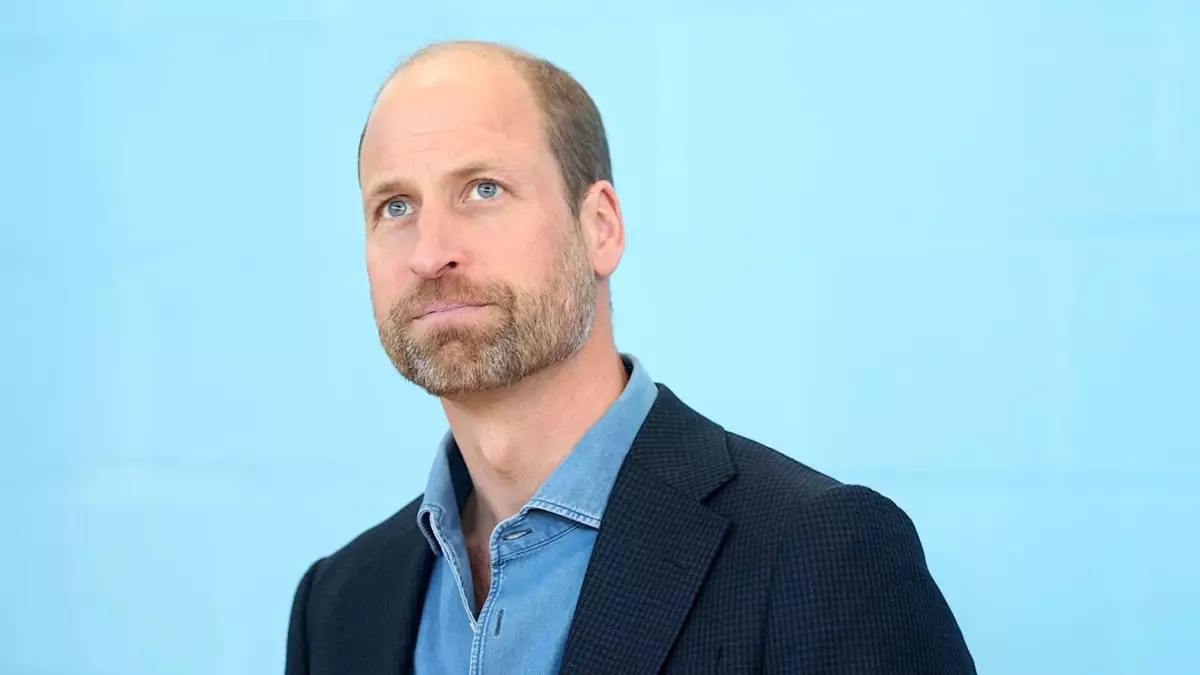When Prince William took charge of the Duchy of Cornwall, he undoubtedly inherited a legacy steeped in tradition and financial acumen, having recently ascended to the title of Duke following his father’s accession to the throne. What might have been perceived as a straightforward continuation of royal duty has instead morphed into a platform for pioneering social change. William’s ambitious vision for the Duchy is refreshing, as he leans away from the reliance on profit and towards a new paradigm of social impact, challenging the status quo in a realm often defined by conventional norms. This shift in focus is emblematic not just of his leadership style but of an evolving understanding of what royal responsibilities can and should entail in a modern context.
A Radical Approach to Farming and Community
At a recent visit to Corston Fields Farm, where he engaged with long-term tenants, William’s candid discussions revealed his earnest intention to reshape agricultural relationships. His playful acknowledgement of a rent-free tenantry, instead of dismissing the idea outright, signaled an openness that is rarely seen in such high echelons of power. Such comments elicit laughter, but they also weave a fabric of trust and transparency, laying the groundwork for impactful reforms that benefit everyone from farmers to families in need of housing.
William’s new guiding principle for the Duchy, “Positive impact for people, places and planet,” transcends mere agricultural productivity; it acknowledges a broader commitment to community well-being and environmental stewardship. His initiatives encompass everything from homelessness solutions to mental health improvements, positioning the Duchy as a community-focused estate rather than just a profit-driven enterprise.
Bridging Gaps Through Communication
A hallmark of progressive leadership is effective communication, and Prince William appears to embrace this wholeheartedly. His efforts to stay connected with staff and tenants alike—through regular updates and personal communications—create an inclusive atmosphere, breaking down barriers that typically exist between management and those on the ground. By encouraging his team to challenge his ideas, he fosters not only a sense of camaraderie but also cultivates an environment ripe for innovation.
This “healthy impatience,” as described by estate director Ben Murphy, demonstrates William’s understanding of urgency without sacrificing compassion. The aim is clear: cultivating a culture where practical assistance and emotional support intertwine seamlessly. From appointing a “family farming ambassador” to hosting community events such as “pie and pint” evenings, William’s efforts reflect a desire to rejuvenate rural life in ways that resonate deeply with those who inhabit it.
Environmental Responsibility and Community Impact
In a world increasingly beleaguered by climate challenges, the emphasis William places on green initiatives is unshakable. His commitment to reforestation and peatland restoration underscores a recognition that the Crown’s influence can extend far beyond family wealth; it can also lead to significant ecological contributions. The vision takes root in the idea that the Duchy should not just steward land but actively participate in its regeneration.
Moreover, William’s ability to balance modern advancements with the time-honored traditions of farming presents a potent blend of innovation and legacy conservation. His methods have the potential to serve as a model for large estates nationwide, championing the idea that rural properties can be platforms for societal betterment rather than mere landholdings for income generation.
The Path Forward for the Duchy
William’s approach is groundbreaking, especially considering the pressures and challenges that contemporary farmers face, from market competition to social isolation. In recognizing these struggles and responding with actionable solutions, he is indeed transforming the perception of royal land ownership into a beacon of hope and community resilience.
His ongoing support for mental health initiatives among farmers, exemplified through partnerships with organizations like We Are Farming Minds, highlights an unwavering commitment to the well-being of individuals who feed the nation. Ultimately, Prince William’s vision for the Duchy of Cornwall exceeds traditional expectations; it encapsulates an inclusive, forward-thinking leadership style designed to uplift communities while maintaining the intrinsic values that come with such a significant title. The Duchy is poised not just to keep pace with the present but to build a more promising future.

